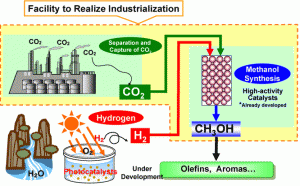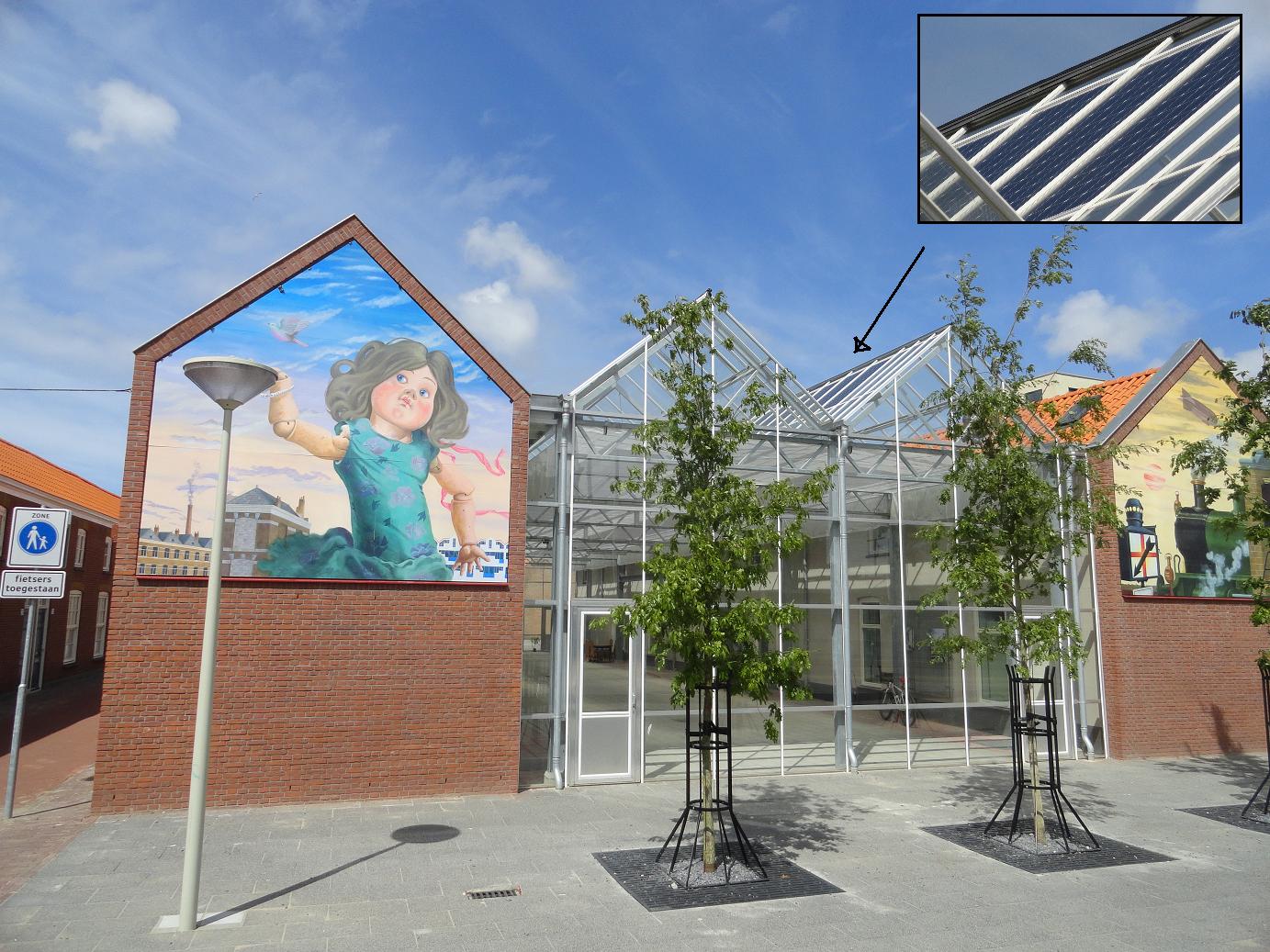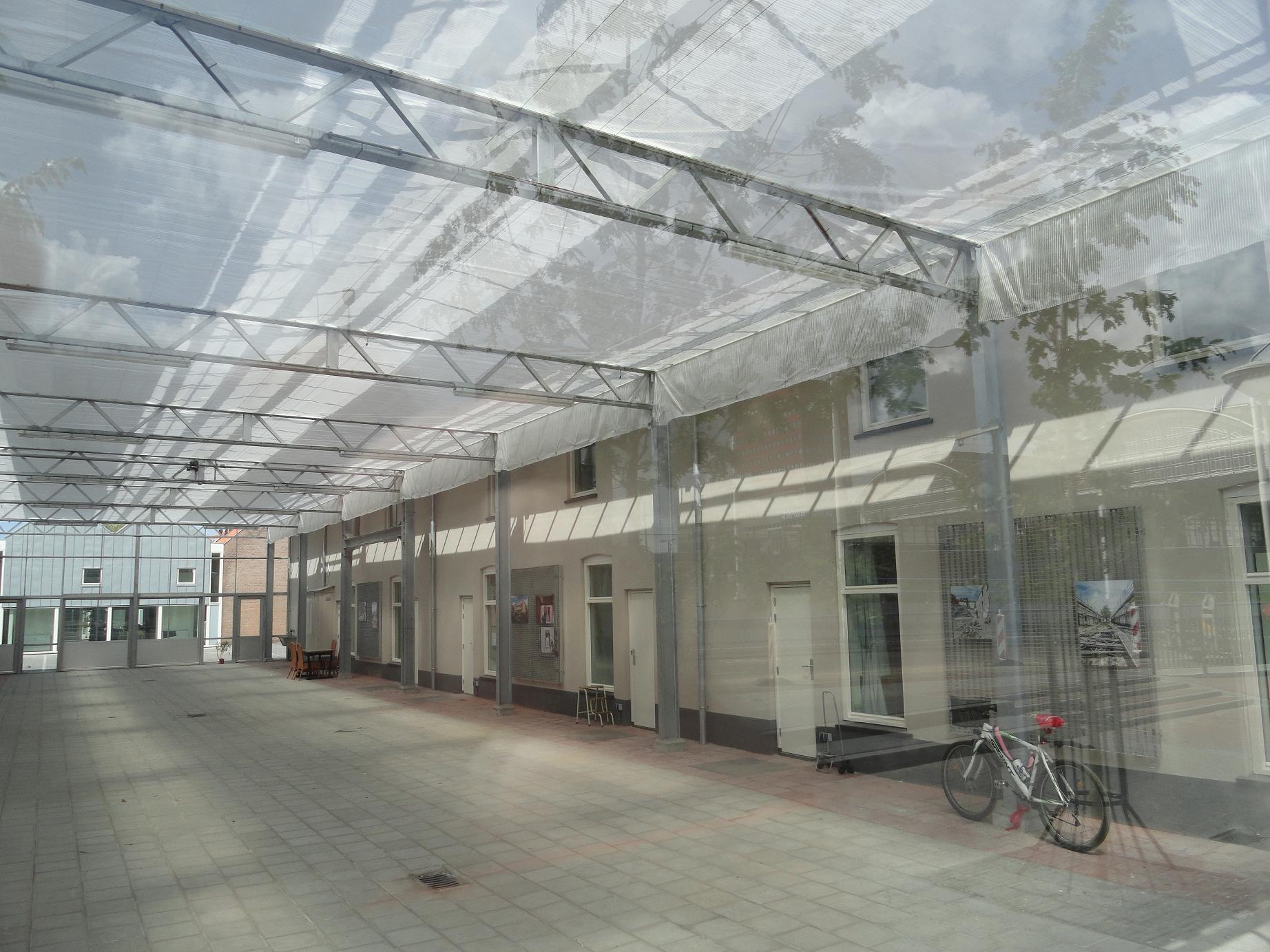“I don’t know anyone in the world who could tell us how Europe’s dependency on importing Russian gas can be changed in the short term,” Germany’s Economic Affairs and Energy Minister Sigmar Gabriel said at the G7 today
So what is short term? One winter? Three winters? This declaration of incapacity may make us forget we do have to move to make ourselves independent. As soon as possible. And there are several ways to do it. Time and time again we have to realize our perception of what can and what can not be done is not reliable if we look at the market. The market is economic, meaning it has to depend on fossil fuels. Solutions that escape that dependency have not been allowed, sometimes in elaborate multi decade moves. Live without russian gas? Of course it is possible.
For Holland, first step is to give up the greenhouse industry. It’s nice, but it burns Gas for heating and CO2, which is a real waste of gas.
First the easy ones : Let’s pipe H2 instead of Gas. Let’s make that H2 using solar cathalyst, for instance with cobalt. Japan did it, but the facts of that successfull test have been carefully hidden. Below an illustration of the project.

Another option is to stop cooking with Gas altogether, converting most furnaces to induction, or mircowave, which would be more efficient as well.
Another one is Heat storage : You can store heat in shallow heat sinks, insulated with vacuum insulation panels, for instance under the streets. They can accumulate heat during the summer, release it during the winter. Phase change materials can help increase capacity.
Many heat storage experiments where cut short to show their yield, or hampered by laws limiting the temperatures allowed in underground storage. Legal objections with no practical risk can be overcome once the target of losing gas is chosen. Deep ground heat storage heat pumps are similarly cut in their performance because of rules about the allowed water temperature, turning many of them in electric heating systems.
Then insulation or the house shell/mantle. The most optimal type may be vacuum insulation, easy to implement. Insulation saves so much gas it usually pays for itself in a couple of years. The level of insulation however is seldomly optimized. Not to zero heating requirements.

An experiment with a glass roof between rows of houses. Internally it is easy to see this does not obstruct traffic or other activities, even if the span is 12-15 meter. For more pictures see here (dutch).

Wind energy can be used to generate heat, also in a utility scale. This heat can then be distributed just like municipal heat, wind heat generators can be part of the municipal heat system. Alternatively people can ‘load up’ heat storage units and take them home. This is a more time consuming system for sure, but it requires les gas, in fact,none at all.
Power to Gas may seem to be in its infancy, but it’s a technology almost a century old. It means water splitting, CO2 splitting and the use of an iron catalyst.
Vacuum solar collectors we now know are tubular ones, with relatively little surface per m2 compared to plates, but with higher performance due to the vacuum. Plate colletors that are vacuum are made by SRB energy and can make up to 400 Celsius steam from normal insolation. This is a huge difference because the higher the steam temperature, the more energy can be extracted. It can heat the home, drive a turbine, put into higher temperature storage.
Cooperation with sunny European Nations Spain and Italy can become major heat exporters, they have dry zones that are sparcely populated that can start a solar farming like the farm fruits and vegetables now. Plants are 5% solar efficient, PV is 15% so there’s much to gain for these countries. A electric cable linking Morocco with Spain is already there. The European grid however is probably much less efficient than power to gas, even if that process is not very efficient. It has the added advantage that the gas can be stored for long periods. There’s also a gas infrastructure.
The effort needs to be mandatory, not market driven, because the market is fossil fuel dependent, as is the financial sector. This is about a new foundation to wealth, one with several thousand of times more potential and an eternal lifespan. The sooner we work those that don’t want it out of the political system, the sooner we can reap the fruits of the sun, wind etc.